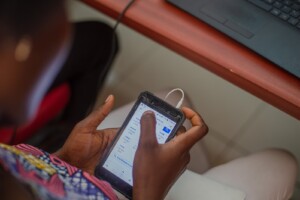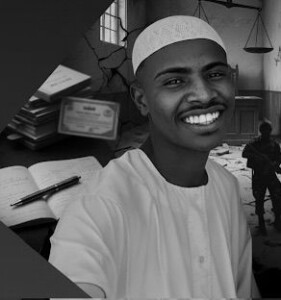Journalists harassed, detained by Sudanese security service
A correspondent for a West Darfur newspaper was interrogated by agents of Sudan’s National Intelligence and Security Service (NISS) on Sunday. A Khartoum reporter has been in detention since 13 April.
A correspondent for a West Darfur newspaper was interrogated by agents of Sudan’s National Intelligence and Security Service (NISS) on Sunday. A Khartoum reporter has been in detention since 13 April.
According to a statement by the Journalists Network for Human Rights, yesterday, agents of the NISS interrogated Aladdin Babiker, a correspondent of El Rai Elam newspaper in El Geneina, for two hours.
“The interrogation included personal threats, treats to his profession, and political information. It stemmed from Babiker’s coverage of protests in El Geneina against the cooking gas crisis that has continued since December.”
The Network explained in its statement that after the interrogation, Babiker was taken to the police station, and then to the NISS building.
Khartoum
Ahmed Zuhair, an intern journalist of El Midan newspaper, has been detained by the NISS since Wednesday 13 April.
He was arrested from in front of the dental hospital while covering the student protests at the University of Khartoum.
He was reportedly arrested by an armed NISS force in serval vehicles. During the arrest, he was beaten with a butt of a Kalashnikov. He was taken to the NISS medical facility at El Amel at Kober district in Khartoum North where received initial treatment, before being transferred to NISS headquarters in Khartoum North, next to Shendi station.
Colleagues fear that he is likely to be subjected to torture, similar to what happened to the students who were detained and released later.
The University of Khartoum has been the scene of widespread student unrest for several weeks, and classes have been suspended. One of the main student grievances is a decision by the university administration to sell-off faculty buildings and move university facilities to the outskirts of Khartoum ‘to make way for tourist attractions’.
Last week, NISS agents raided a Khartoum law office and arrested several students who were suspended from Khartoum University as they consulted with their lawyer.
Press freedom
Sudan ranks an unenviable 174th out of 180 in the 2016 World Press Freedom Index, published by Reporters Without Borders on 20 April.
The Index publishers point out that Omar Al Bashir, Sudan’s president since 1989, “has been indicted by the International Criminal Court for crimes against humanity and his country ranks near the bottom of the press freedom index. The National Intelligence and Security Service (NISS) hounds journalists and censors the print media, above all by closing down newspapers, such as the daily Al Tayar in December 2015, or by confiscating entire newspaper issues as they come off the press. Journalists are subjected to interminable judicial proceedings with potentially long jail sentences.”
UN Expert
On Thursday, the UN Independent Expert on the Situation of Human Rights in the Sudan, Aristide Nononsi, concluded a visit to Sudan. Examining press freedom violations was one of the items on the agenda for his visit.
In his report, the UN Expert notes: “I would also like to express concern about ongoing censorship of newspapers, and increased restrictions on journalists from freely expressing their opinion. In view of the ongoing political dialogue, it is imperative that restrictions on the rights to freedom of expression and association be removed in order to create a conducive environment for a free and inclusive national dialogue. In this context, the suspension by NISS of the Al-Tayar newspaper since mid-December 2015 is of concern. I have raised this case with the authorities, and I strongly recommend that the appeal of Al-Tayar newspaper against NISS’ decision to suspend its operations is guaranteed an independent judicial review along with provision of adequate compensation.”











 and then
and then